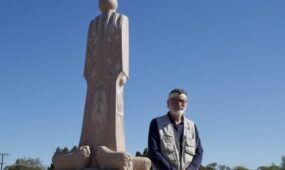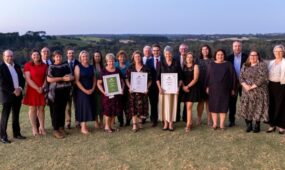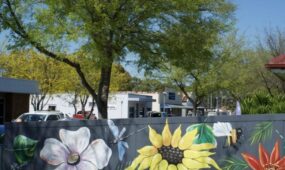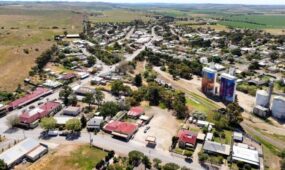'I'm grateful to be alive': Tanunda mum drives organ donation awareness
Regional
While most people spend their 20s navigating their way through the first stages of adulthood, Barossa Valley woman Megan McLoughlin once feared she would never live to see 30.

Sign up to receive notifications about new stories in this category.
Thank you for subscribing to story notifications.
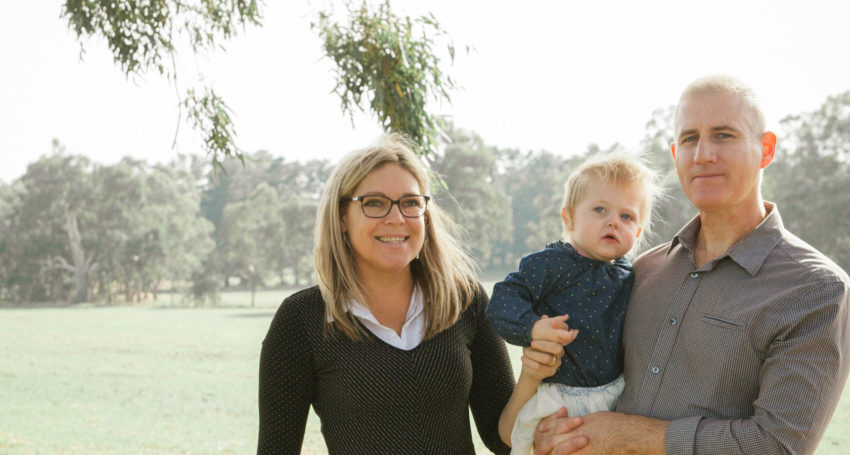
In 2010 at the age of 29, she was suffering from acute renal failure and was given just three weeks to live.
In desperate need of a lifesaving kidney-pancreas transplant Megan was preparing for the end, and heartbreakingly, began planning her own funeral.
Thankfully, Megan was given a second chance at life through the gift of organ donation. Now, almost a decade later, the Tanunda mother-of-two who is also legally blind has made it her mission to help support regionally-based organ donor families and transplant recipients.
She established charity Herd of Hope in 2016, promoting organ donation along with the need for greater support and services for transplant recipients and bereaved donor families in country areas.
Megan’s efforts have led to her being named the 2019 SA Local Hero, and this month she will travel to Canberra alongside three other SA Australia Day Award recipients vying for the national award.
Not only has her charity work and organ donation awareness inspired many, but so too has her messages of positivity amidst more health setbacks – two cancer diagnoses.
“I’m not saying there aren’t times when we get down and think life is really difficult, but you’ll always find a way out of it,” Megan says. “There is a positive every morning when the sun comes up. The day is yours.”
Born with one kidney, Megan was diagnosed with juvenile diabetes at the age of eight. Growing up in the Flinders Ranges she knew too well the challenges of travelling long distances for medical appointments.
In her late 20s, she suffered major complications during eye surgery and became legally blind. Three months later her only kidney began to fail and Megan was given just three weeks to live.
If it weren’t for the kidney-pancreas transplant it’s likely she would have died.
According to Donate Life, more than 1400 Australians are currently waiting for organ transplants, which can include lungs, heart, kidney, liver and pancreas as well as tissues, bone and skin.
South Australians can state their intention to be an organ donor on their driver’s license, however, in the event of a person’s death, their family can still have the final say.
Herd of Hope says in 2017 only 44% of families who were unaware of their loved one’s intention to be an organ donor upheld their wishes.
Megan’s friend and Herd of Hope executive Annie Allert encourages all Australians to speak with their family about their organ donation intentions so that if something happened the decision might be “a bit easier” to make.
She also encourages those wishing to donate their organs to join the Australian Organ Donor Register, even if their driver’s licence states their intention.
“It simply takes one minute,” Annie says.
“Your family can still contest it (the decision), but the national registration just makes it a bit easier … it’s less of a burden. We encourage people to have that conversation with their family.”
Through Herd of Hope, Megan has met many inspiring organ donor families and fellow transplant recipients and says it’s unfortunate that both groups must co-exist.
“Unfortunately, modern medicine hasn’t advanced to the point where we aren’t reliant on someone passing away to save another’s life,” she says.
“In an average year 53 people pass away while waiting for an organ transplant. That doesn’t seem like a large statistic unless you’re one of them. Organ donation is such a selfless act that can save many lives and the grief of other people.”
Herd of Hope has held many events and initiatives to increase awareness and support services for donor families and transplant recipients in country areas.
In 2018, the charity brought the bush to the beach when a herd of Australian Pol Hereford cattle were mustered onto Sydney’s Bondi Beach, raising funds and awareness for organ donation.
Herd of Hope has also raised money to help pay for accommodation for regionally-based donor families and families of transplant recipients staying near city hospitals during the transplant process.
One of its latest projects is the Tree of Hope, an emotional tree sculpture featuring hundreds of leaves engraved by bereaved donor families in honour of their loved ones. The tree is touring interstate and will arrive at the Royal Adelaide Hospital later this month before it goes to Perth.
Herd of Hope has also funded a study by the University of South Australia into the impact transplant recipients and their carers face when regionally based. In March the charity will attempt to break the world record for the most organ donor registrations received in one hit.
Besides her Herd of Hope work, being a mum to Sam, 4, and Ella, 2, and a wife to Mark, Megan also enjoys riding her horse, Biscuit, and despite her vision impairment competes in the equine sport, barrel racing.
It’s this determination to attack life regardless of her circumstances that makes Megan the true optimist.
“I’m extremely grateful to be here, there’s not a thing I would change about my life,” she says.
“My grandma used to tell me a quote when I was younger, she used to say, ‘I felt sad because I couldn’t afford shoes and then I saw a man with no feet’. That basically sums it up.”
This story was first published by Brand South Australia for the Regional Showcase.
Jump to next article

